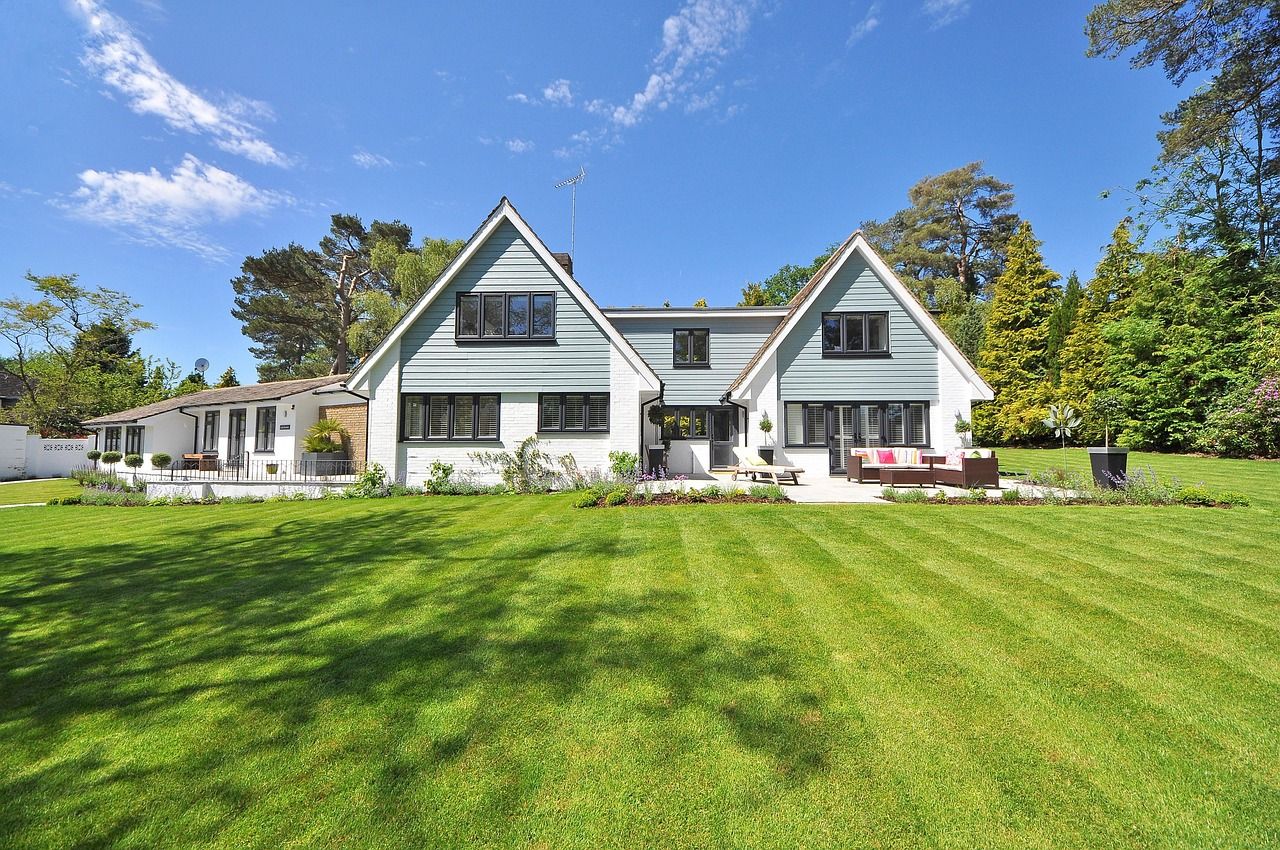Building a House vs Buying: What Home is Right For You?
Click here to browse our Real Estate Agent Directory and contact top-rated agents in your area!
FastExpert partner, Bill Gassett, has decades of experience as a Realtor and has built two homes of his own. Read his advice on building a house vs buying and decide what’s right for you.
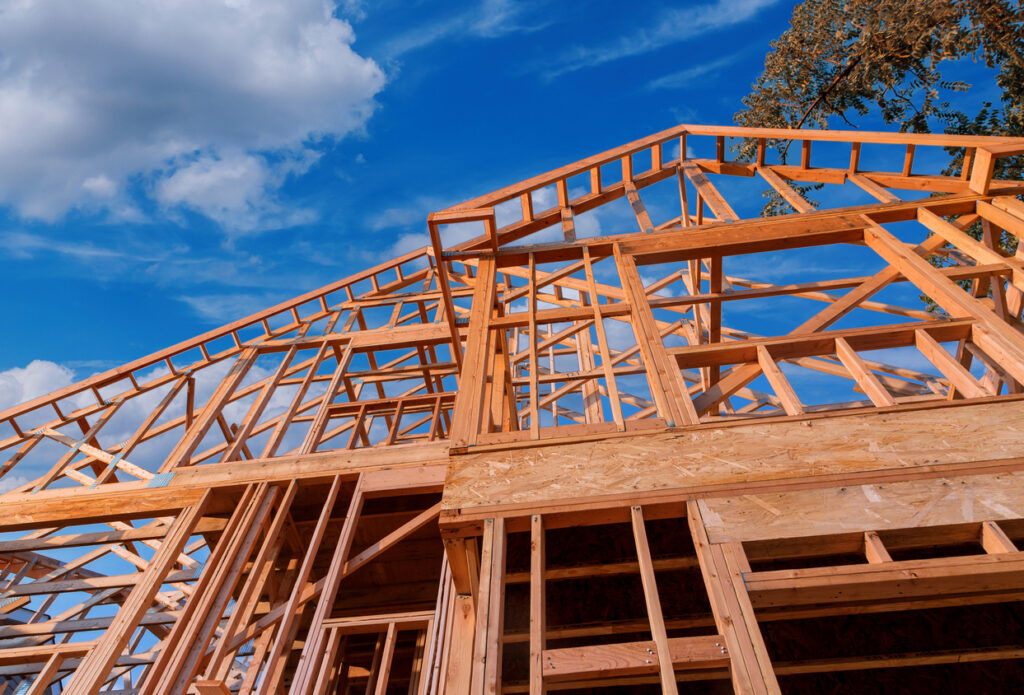
When deciding between building a house vs buying an existing home, several factors must be considered. New construction offers modern designs, customizable features, advanced technology, and energy-efficient systems. However, it may have a higher price tag and potential construction delays.
On the other hand, existing homes are often more affordable and located in established neighborhoods with mature landscaping. There are also more diverse locations to choose from.
From my experience as a Realtor for the past three decades, it’s critical to remember these things before deciding.
We will take a comprehensive look comparing building a house or buying a resale home. Let’s dig in!
What’s Cheaper, Building a House or Buying an Existing House?
One of the key considerations when entering the housing market is whether either buying a house or building a house is more cost-effective.
Let’s explore the pros and cons of both options to help you make an informed decision.
Building a House vs. Buying: Pros and Cons
New House
Building a new home offers the advantage of customization and modern designs. You can choose the layout, finishes, and building materials, that align with your preferences. Newly constructed homes often come with the latest energy-efficient technologies, reducing long-term maintenance costs.
However, building a home can have the drawbacks of higher upfront expenses and potential construction delays.
Existing House
On the other hand, buying an existing home comes with its benefits. These homes are typically located in established neighborhoods with mature landscaping and convenient access to amenities. Buying an existing home often involves lower initial costs than new construction.
However, older homes may require repairs or renovations, which can add some unexpected costs to the overall expenses.

Comparing the Costs: New Construction vs. Existing Property
New House
The cost comparison between building a house vs buying an existing home is essential in making an informed decision. The cost of building a house can be expensive.
There are often cost overruns too, even when you have your budget down pat. You’ll see some features you love when touring homes and want to add them to your project.
When building a home, you’ll need to consider the expenses of land acquisition, permits, architectural plans, land surveys, materials, construction, labor costs, and potential customization upgrades.
Existing House
On the other hand, buying an existing home involves evaluating factors like the home’s condition, resale value, potential renovation costs, and necessary repairs.
It’s crucial to conduct thorough research and make detailed cost comparisons to understand the financial implications of each option.

Financing Options: Building vs. Buying
Construction Loan Options for Building a New Home
Financing options can also impact your decision between building a house or buying a resale house.
Knowing about the various construction loan options is essential if you are considering building a house. Building a brand new home most often requires a construction loan, which provides funds throughout the building process. This type of loan typically comes with a higher interest rate and requires a larger down payment.
Explore the types of construction loans available, including construction-to-permanent loan and renovation loans. Do your research so that you can navigate the financing process for building a new home.
Home Loan Options for Buying an Existing Home
On the other hand, buying an existing home allows for more flexible financing options, such as conventional mortgages or FHA loans. These financing options may allow a lower down payment and offer more favorable interest rates, making them accessible to a broader range of homebuyers.
Ultimately, deciding between building a house or buying an existing house depends on your circumstances and preferences.
Considering the pros and cons, cost comparisons, and financing options will help guide you toward the right choice for your specific needs and goals.
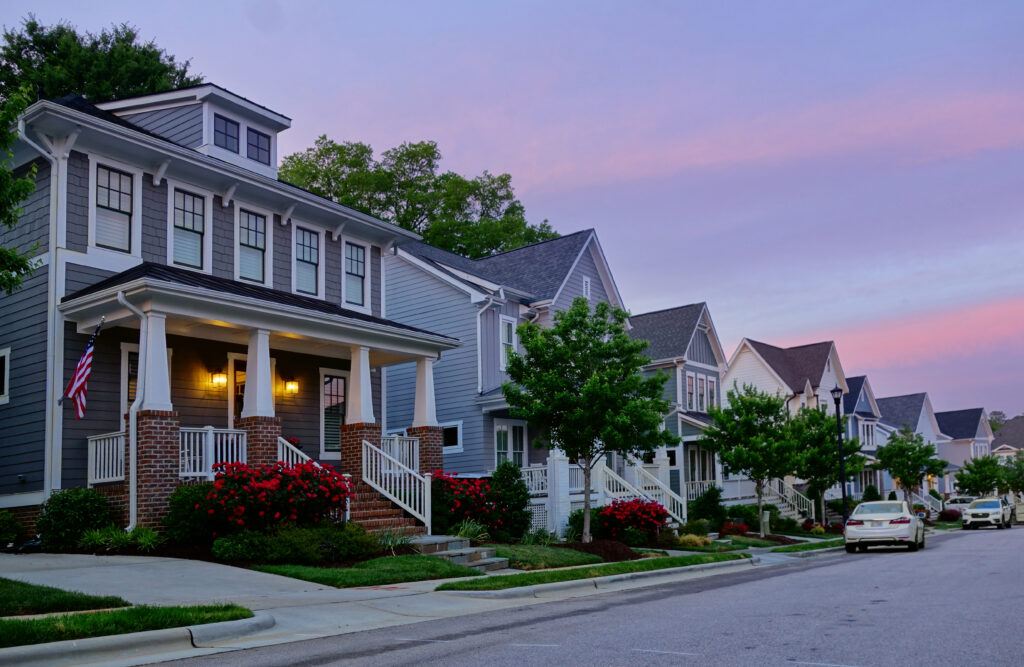
Tips for Choosing Between New or Existing Homes
The decision between building and buying a home involves various factors that should be carefully evaluated.
Here are some tips to help you navigate this critical choice:
Considering Your Budget and Financing Options
Evaluating your budget is crucial when deciding between new construction and an existing home. Assess your financial capabilities and determine how much you can afford for either option.
While there are some affordable new housing options, they often can still be more expensive than comparably sized resales.
Consider the potential construction costs or renovations for an existing home.
Additionally, explore different financing options available to you, comparing the terms and interest rates lenders offer to make an informed decision.
Evaluating Your Timeline and Availability
Another important aspect is your time frame to move into your new home. If you build a house from scratch, it typically takes longer due to the construction costs. Purchasing an existing home allows for quicker occupancy.
Evaluate your timeline and availability to determine which option aligns better with your needs and circumstances.
Assessing Your Preferences for Design and Customization
Personal preferences for design and customization play a significant role in choosing between building and buying a house. New construction allows you to customize various aspects of your dream home, from floor plans to finishes, creating a space that reflects your style and needs.
As a Realtor, I have always been drawn to building my own home. I’ve custom-built two homes from the ground up. For me, having the ability to choose the exact floor plan and amenities was a crucial part of my decision to build a house. My experience building these homes was both rewarding and educational. Additionally, I sharpened my skills when working with home builders and gained an understanding of the intricate home-building process.
On the other hand, existing homes often possess unique character and charm with their established design elements. Consider which option aligns more closely with your vision and desired level of customization.
Examining the Market and Location Factors
The market and location factors also warrant careful consideration. Research the real estate market in your desired area to gather insights into the availability and cost of both new construction projects and an existing home purchase.
Consider neighborhood amenities, school proximity, transportation, and potential future development. These factors will help you determine which option suits your lifestyle and long-term plans better.
Considering these tips, you can make a more informed decision between building a house and buying a new home.
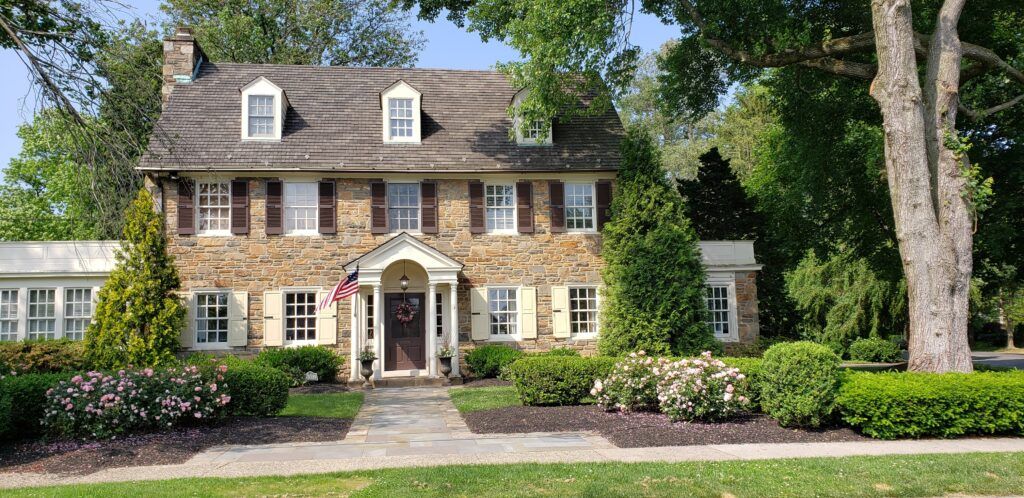
Factors to Consider for Existing Home Buyers
When considering purchasing an existing home, there are several important factors that buyers need to take into account.
Assessing the Condition and Potential Repairs of Older Homes
One key consideration for resale home buyers is the condition of the property. It’s essential to thoroughly assess the state of the house, including any potential repairs or maintenance that may be needed. Work closely with your real estate agent to determine if the home would be move-in ready or if renovations are required.
Upgrades could include evaluating the age and condition of major systems such as the roof, plumbing, and electrical and examining the home’s overall structural integrity.
Hiring a professional home inspector can provide valuable insights and help identify any hidden issues requiring attention.
Evaluating Resale Value and Market Trends
Another vital factor to consider is the purchase price and potential resale value of the existing home. It’s wise to evaluate the local real estate market and the average price trends to understand whether home prices in the area are appreciating or depreciating.
Researching recent median sales price data and working with a knowledgeable real estate agent can help buyers gauge the potential for future appreciation and make an informed decision.
Additionally, considering the neighborhood’s desirability and growth potential can also impact the home’s long-term value.
Comparing Energy Efficiency and Maintenance Costs
Energy efficiency and ongoing maintenance costs are crucial when buying an existing home. Older homes may have outdated insulation, windows, or appliances, which can lead to higher energy bills.
Evaluating the home’s energy efficiency and assessing potential upgrades or improvements needed to reduce energy consumption is essential.
Understanding the maintenance costs associated with an older property, such as regular repairs or replacing aging systems, is also essential to budgeting for homeownership expenses.
Exploring Neighborhood Amenities and Community Factors
Beyond the home itself, existing home buyers should carefully consider the surrounding neighborhood and community. This includes examining the various property taxes, accessibility, and proximity of amenities such as schools, parks, shopping centers, and transportation options.
Evaluating the overall neighborhood vibe, safety, and sense of community can significantly impact daily life and satisfaction with the home.
Engaging with residents and exploring the area firsthand can provide valuable insights into the lifestyle and atmosphere of the community and neighborhood.
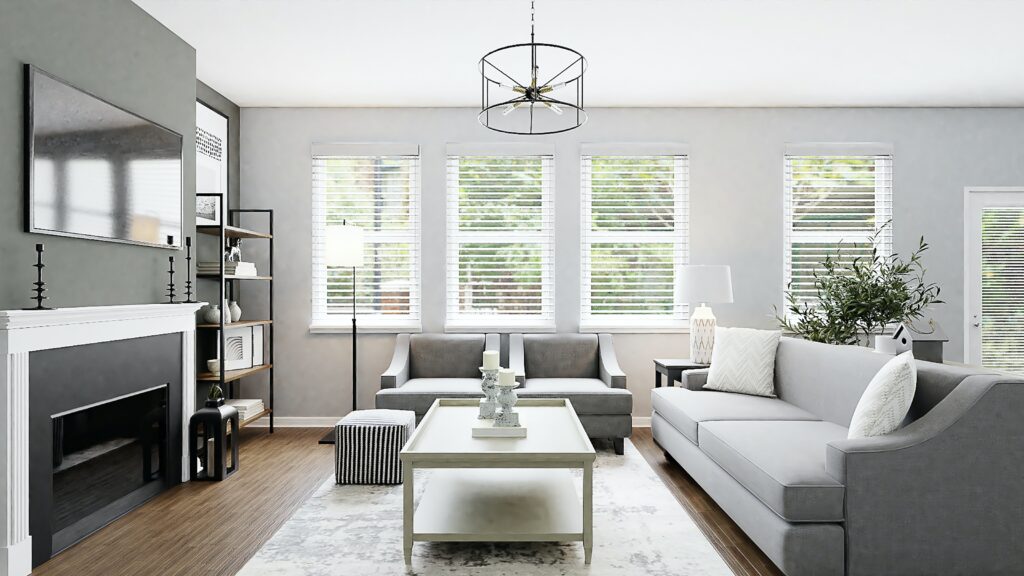
Advantages and Considerations for New Construction Buyers
When deciding between building a house and buying an existing home, there are several factors that new construction buyers should consider. Here are some advantages and considerations to keep in mind:
Exploring Floor Plan Options and Customization Potential
New construction homes offer the opportunity to explore various floor plans and customize the space according to your preferences. You can work with the builder to determine the layout, room sizes, and features that best fit your lifestyle. Each detail of a new construction home can be designed to make your dream home.
Examining the Quality and Durability of Newly Built Homes
One advantage of new construction homes is the assurance of modern building techniques and materials, often resulting in higher quality and durability. You can expect newer construction to meet current building codes and standards, providing peace of mind and potential long-term savings on maintenance and repairs.
Assessing the Costs and Benefits of Green Building
You can upgrade a new home to include green and sustainable products.
New construction homes often prioritize energy efficiency and sustainability. Many builders incorporate green building practices, such as energy-efficient appliances, insulation, and windows, which can result in lower utility bills over time.
Considering the environmental impact and potential savings, weighing the initial cost against the long-term benefits is crucial.
Understanding Warranty and Builder Reputation
One significant advantage of a new construction home is the warranty that often comes with it. Home builders typically provide warranties on various home components, including structural elements, plumbing, and electrical systems.
Understanding the terms and duration of the builder’s warranty is crucial. It’s one of the better tips when building a house. Additionally, researching the builder’s reputation and track record can help ensure a positive experience and quality construction.
Considering the advantages of exploring floor plan options, the quality and durability of newly built homes, the costs and benefits of green building, and understanding warranty and builder reputation, new construction buyers can make an informed decision that aligns with their lifestyle and preferences.
Final Thoughts New vs. Resale
Buying a new house versus buying a resale home often depends on desires and personal preferences. There is no right or wrong choice for most. Weigh the pros and cons of each option carefully before deciding. Rushing into one of the other could lead to a choice you’ll regret.


